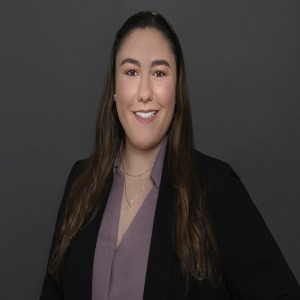The Estate Plan in Miami, Florida is a dedicated team of legal professionals that provides a personalized, efficient, and reasonably-priced estate plans to clients in the surrounding areas.
The Estate Plan
135 San Lorenzo Ave Suite #750
Coral Gables, FL 33146
(305) 677-8489
https://www.TheEstatePlanFL.com/
Common Probate Terms
PROBATE VS. NON-PROBATE ASSETS
Part of the probate process is determining which assets will be distributed by the court. Generally, if an asset is titled only in the name of the decedent, without naming any beneficiaries or co-owners, then it will be distributed through the probate court. Some examples of probate assets can be bank accounts, real estate (unless it is a homestead property), a life insurance policy, individual retirement accounts, cars and business ownership interests.
INTESTATE VS. TESTATE
A probate administration can be guided either by a valid will (a process called dying, “Testate”) or, when there is no valid will, by the statutes that govern probate proceedings in the state of Florida (a process called dying “Intestate”). In the State of Florida, a will is considered valid when it complies with the following requirements:
•Any person who is of sound mind and who is either 18 or more years of age or an emancipated minor may make a will.
•The testator must sign the will at the end; or
•The testator’s name must be subscribed at the end of the will by some other person in the testator’s presence and by the testator’s direction.
•The attesting witnesses must sign the will in the presence of the testator and in the presence of each other.
In the case where there is an invalid Will or no Will exists, the laws of intestacy, enacted by the State of Florida, determine the distribution process.
SUMMARY VS. FORMAL ADMINISTRATION
Within the probate system, there are two types of administration that can be applied to probate cases: summary and formal administration. Formal administration can be applied in all estates whereas summary administration has certain restrictions. An estate can be administered under a summary administration if the decedent died more than 2 years from the date of filing or if the estate has less than $75,000 in non-exempt assets. Summary and Formal are both distinct types of administration that can achieve certain goals depending on the estate’s needs and circumstances. A Formal administration is a longer, more complex process that requires the appointment of a Personal Representative (aka “Executor” in other states) to administer the estate. In both types of administration, an attorney must represent the petitioner seeking to probate the asset(s).
PERSONAL REPRESENTATIVE
In Florida, a personal representative is appointed by a probate judge in formal administration to oversee the decedent’s estate. A personal representative can be either an individual, a bank, or a trust company. An individual that is under the age of 18, has been convicted of a felony, or is mentally or physically unable to perform duties is not qualified to act as personal representative. A personal representative must seek the assistance of an attorney to assist them in the administration of the estate. Like the attorney, a personal representative of an estate is legally entitled to reasonable compensation for their services.
ANCILLARY ADMINISTRATION
Ancillary administration is an appropriate type of probate if the decedent owned property in Florida but was a resident of another state. Ancillary administration is especially common in Florida because of the large number of vacation properties in Florida. This type of probate administration is also appropriate if a Florida resident owns real property in another state as well. In this second scenario where the person was a Florida resident, the Florida probate would be known as the “Domiciliary” administration and the other state’s probate (e.g. New York, Texas or California) would be known as the “Ancillary” administration.





















































